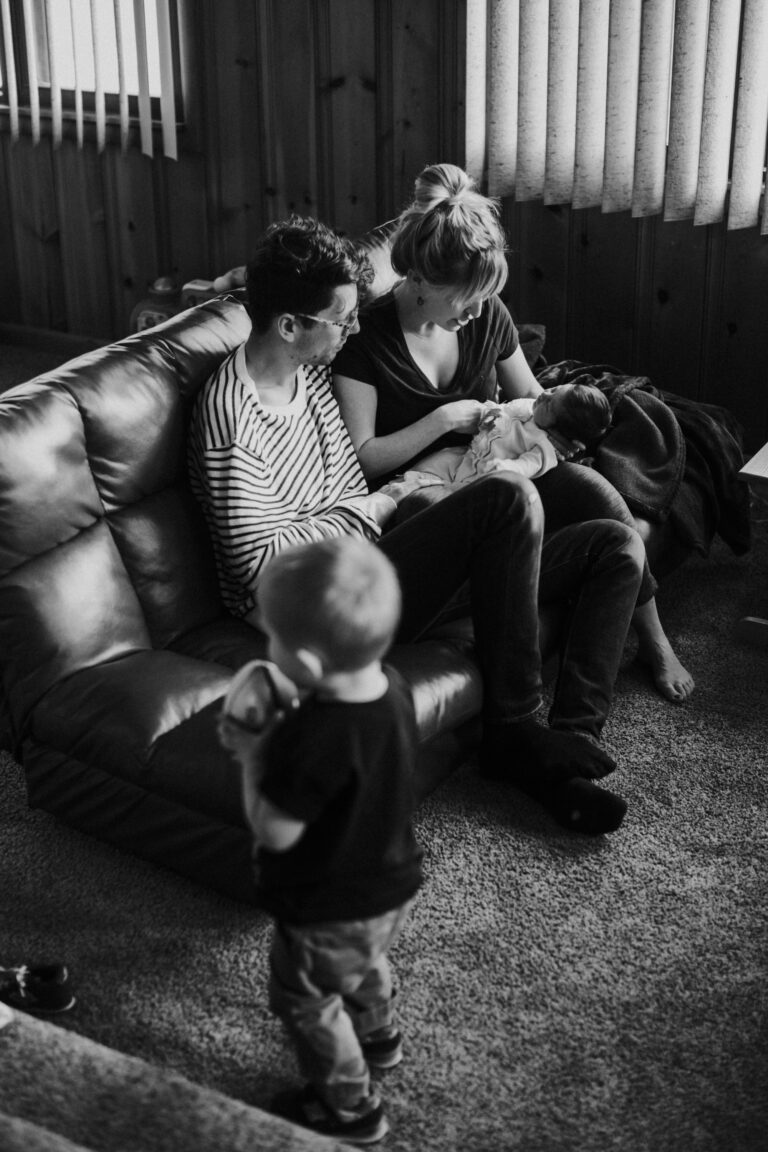Navigating early parenthood brings an intricate tangle of emotions and logistics, but when you’re organizing as a single parent with a baby, the blend of fatigue, scheduling hurdles, and emotional weight often feels supercharged—sometimes even relentless. Now, the avalanche of daily micro-decisions (which bottle, which onesie, which doctor’s appointment is next) can spiral into an invisible mental load, subtly eclipsing personal needs and amplifying stress levels. Parents like you might lie awake, wondering about meal prep, unexpected fevers, or how to juggle an errand run when your baby is on the verge of a nap disaster. Yet, in this lively swirl of duties and uncertainties, there are layers of solutions: from establishing predictable routines, to leveraging smart technology, to reinforcing your “village” of support, organizing as a single parent with a baby can gradually morph from a daunting prospect into an environment where you—and your child—thrive. What strategies can help transform daily life from reactive to proactive? Where do self-care and expert advice fit in? Find a comprehensive breakdown below.
Acknowledging the Emotional and Practical Realities
Organizing as a single parent with a baby means orchestrating the days solo, without a spare set of hands for the midnight fever or last-minute diaper blowout. The phenomenon of “mental load”—the cognitive labor of always remembering, anticipating, and preparing—is especially pronounced. Studies highlight that excessive unmanaged stress can contribute to poorer sleep, irritability, and decreased immune function in caregivers, impacting both parent and infant outcomes (ref: American Academy of Pediatrics). Recognizing and validating emotions—whether fatigue, loneliness, or pride—sets the groundwork for resilient self-management.
Support networks operate as a buffer: fewer than half of single parents report consistent backup, but those who do experience lower rates of postnatal anxiety and burnout (National Institutes of Health). By identifying reliable contact people (friends, neighbors, or online groups) and labeled “emergency” allies (pediatricians, lactation consultants, or doulas), you establish a scaffold of security. No one has to weather this storm in hermetic isolation; connection, even in brief phone calls or messaging chats, fortifies emotional reserves. Practice self-compassion—not every day is smooth, and that’s entirely within the boundaries of normal.
Streamlining Everyday Routines: Creating Predictability Out of Chaos
What does “structure” actually look like when organizing as a single parent with a baby? Predictable anchors—like consistent wake-up, feed, nap, and bedtime windows—help regulate your baby’s circadian rhythms (biological sleep-wake cycles), reducing behavioral disruptions and improving sleep quality (ref: Sleep Foundation). Rituals, even as gentle as a lullaby after bath time or a nightly cuddle, serve as familiar cues for infants, calming their developing nervous systems and simplifying day-to-day operations for you.
Batching tasks is a lifesaver: preparing formula or breast milk portions during one window, premixing purees for the next day, or grouping laundry loads by urgency and frequency. Technological aids, from Google Calendar to visual chart planners, reduce errors and stave off mental fatigue. What about the endlessly scattered baby items? Minimalism isn’t an aesthetic, but a strategy—rotate toys and clothing seasonally, and rely on labeled bins or baskets to corral chaos. Each evening, set the next day’s essentials (clothes, meals, outing bags); mornings will unfold with far less friction.
Maintaining flexibility—rather than a strict, minute-by-minute itinerary—means that if your baby skips a nap or a teething episode upends plans, frustration won’t completely derail your progress.
Arranging a Baby-Friendly, Stress-Reducing Home
The concept of “baby-proofing” has its roots in fundamental child safety research: safe sleep recommends a firm, clutter-free sleep surface with no loose blankets, bumpers, or soft toys to dramatically lower the risk of Sudden Infant Death Syndrome (SIDS) (CDC). Outlet covers, safety gates, and anchoring furniture prevent accidents in increasingly mobile babies. Keep changing stations at a back-friendly height, fully stocked with diapers, wipes, and fragrance-free creams (which reduce chances of contact dermatitis), eliminating unnecessary midnight sprints.
Strategically, stashing small caches of essentials (snacks, sanitizing wipes, a change of clothes) throughout the home is an established time-saver and anxiety barrier. Decluttering—one corner, one drawer at a time—keeps your mind clearer and reduces tripping hazards. Use vertical storage to maximize limited space, especially for those in apartments or shared living. A donation box (for outgrown clothes) and rotating seasonal wardrobes prevent that familiar “why does nothing fit?” morning struggle.
Key Organizational Tools and Parenting Gear
Organizing as a single parent with a baby gains a significant boost from thoughtfully chosen products. Evidence suggests that frequent skin-to-skin contact supports attachment and reduces crying times; a structured baby carrier enables this bond, even while making a sandwich or soothing a hungry older sibling. Stationary amusements—a bouncer or infant seat—provide a safe, supervised zone for your baby during essential “hands-free” moments.
Laundry is a perpetual background hum in every family, but a tumble dryer (where available) cuts drying time, minimizes mildew risks, and ensures a steady rotation of clean linens—especially vital in reflux-prone infants or during viral outbreaks like norovirus (characterized by vomiting and frequent bedding changes).
Subscription deliveries of diapers, formula, or wipes take decision fatigue off your shoulders. Meanwhile, a always-packed diaper bag prevents frantic, last-minute scrambles before leaving the house.
Leveraging Digital Solutions for Sanity and Efficiency
Apps designed for parents, and not just general productivity, integrate seamlessly into the rhythm of modern parenting. Google Calendar and Notion structure appointments and reminders. Paprika handles meal planning, grocery lists, and recipe tracking—essential for allergy management or introducing solid foods according to pediatric guidelines (start with iron-rich, single-ingredient foods). For budgeting, Mint or YNAB categorize spending, track medical expenses (including copayments and prescription refills), and aid in saving toward an emergency fund.
Medical information shouldn’t live on scraps of paper—specialized portals like MyMedRec or your pediatrician’s app maintain immunization histories, allergies, and notes on development. Automated bill payments mitigate risk of lapsed coverage or late fees, freeing mental bandwidth for more important moments.
Self-Care: A Foundational Pillar, Not a Luxury
In the maelstrom of organizing as a single parent with a baby, personal health is often the first to be sacrificed. Yet consistent evidence points to the correlation between parental well-being and infant development; chronic stress can attenuate oxytocin levels—known as the “bonding hormone”—impacting affective (emotional) connection. Micro-practices like deep breathing, short meditations, or even jotting down three positives each evening (gratitude journaling) build long-term resilience.
Monitor for signs of burnout: relentless tiredness, irritability, or feelings of detachment are valid concerns—not stigmas. If any symptom lingers or escalates (e.g., persistent sadness, intrusive thoughts), prompt consultation with a family doctor or mental health professional is recommended. Setting boundaries with your support network—learning to say no to non-essential requests, delegating appropriately—protects your limited time and energy resources.
Engaging and Mobilizing Your Support Network
“It takes a village”—a maxim supported by decades of developmental research. Children raised in collaborative environments show higher emotional security and social competency (ref: Harvard Center on the Developing Child). Enlist relatives or friends for regular “check-in” calls, periodic babysitting, or shared meal prep days. Communities—local or online—offer camaraderie, practical swaps (clothes, toys), and a ready-made sounding board for every milestone (first tooth, first cold, first meltdown in the cereal aisle).
Professionals in your sphere—pediatricians, midwives, lactation specialists—anchor your support system, providing evidence-based guidance for topics like feeding transitions, allergy prevention, or medication dosing. For working parents, negotiate for flexible schedules when possible; even short remote work intervals can ease the transition during infant illnesses or sleep regressions.
Strategies for Health, Safety, and Medical Management
A well-organized health file is more than just convenience; it’s an insurance policy. Keep a digital or paper dossier with vaccination records, emergency contacts, and specific care instructions for all caregivers (especially those related to food allergies, asthma action plans, or medication routines). Reminders for checkups—set months in advance—reduce the risk of missed vaccinations and allow time for insurance or paperwork resolutions.
Baby-proofing is an evolving challenge as your child grows: reassess risks regularly (remove cords, raise medications, repair loose banisters). House safety goes beyond the basics—regularly test smoke and carbon monoxide detectors and ensure your first aid kit is complete and tailored for infants. Know the basics of infant first aid: choking protocols, fever management, and signs of dehydration (sunken fontanelle, dry mouth)—and update your skills with reputable courses.
Family Connection and Adaptability
Routines, checklists, and digital calendars are powerful, but emotional connection is what binds a family narrative. Regular activities—whether sharing a simple board book before bed or group meal prep—imbue meaning in otherwise ordinary days. Involve older siblings at their level: sorting laundry, setting the table, or choosing bedtime music. Encourage gratitude as a family with “highs and lows” conversations, which nurture perspective-taking and emotional intelligence.
As your baby grows, priorities shift. Stay nimble—when a sleep regression strikes, when a new daycare is needed, when tastes abruptly change from mashed peas to only bananas. Adaptation, not perfection, produces resilient, self-assured families.
Key Takeaways
- Organizing as a single parent with a baby is an ever-evolving process, woven from moments of challenge and triumph. Building daily routines, prioritizing self-care, and thoughtfully employing digital and physical tools turn overwhelm into manageable flow.
- A robust support network—personal, digital, and professional—buffers both emotional and logistical strain.
- Maintain health records up to date, baby-proof dynamically, and plan financially for unplanned needs.
- Harness the advantages of technology and community exchanges, but trust your own instincts as primary caregiver.
- Emotional warmth isn’t an afterthought; it forms the backbone of healthy child development and family resilience.
- If ever in doubt or feeling adrift, reach for a pediatrician, mental health professional, or local support groups—they exist to help families thrive, not just survive.
For ongoing support, consider downloading the Heloa app: it offers personalized advice, health questionnaires adapted for children, and practical tips tailored to your everyday reality as a single parent.
Questions Parents Ask
What financial assistance is available for single parents with a baby?
Navigating finances as a single parent can feel overwhelming at times. Thankfully, there are various forms of support specifically designed to help. You may qualify for aids such as childcare subsidies, tax credits for families, or supplementary income benefits depending on your location. Many local organizations, family centers, and government programs offer help with essentials like food, housing, and medical care. Don’t hesitate to contact your city’s social services or seek information online—reaching out is a valuable step for your family’s well-being, and you are not alone in making these inquiries.
How can single parents stay organized while balancing work and baby care?
Balancing work responsibilities with caring for a baby is a real achievement each day. Small routines can make everyday life smoother: scheduling regular times for meals, rest, and play, and using calendars or reminder apps to keep track of appointments or tasks. Preparing meals in advance, opting for easy-to-prepare foods, and keeping essential baby supplies organized and accessible can help reduce daily stress. If possible, consider flexible work arrangements like remote work or staggered hours. Remember—the perfect routine does not exist. Adjustments are normal, and every step you take towards organization is valuable for your peace of mind.
Where can single parents find emotional support and feel less isolated?
It’s natural to experience moments of loneliness or uncertainty when parenting solo. Support networks exist in many forms: you might find reassurance by connecting with local parenting groups, joining online communities, or reaching out to close friends or family. Many parents discover strength and understanding in groups where they can share experiences and tips with others who genuinely relate. Professionals such as counselors, pediatricians, or community workers are also there to listen and provide guidance. Seeking connection is an essential act of self-care—it is a reminder that you deserve support, encouragement, and kindness on your parenting journey.
Further reading:









